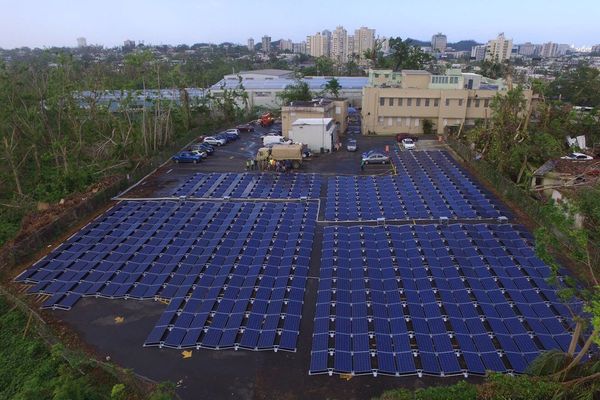Microgrids in Puerto Rico: Clean Power & Energy Independence
- Student
- Samuel Kuster
- College(s)
- College of Arts and Letters
- Faculty Advisor
- Donna Glowacki
- Class Year
- 2019

Since the devastation caused by Hurricane Maria in 2017, the long-standing energy crisis in Puerto Rico has become even more urgent—with thousands of people still without reliable power. The Federal Emergency Management Agency (FEMA) has allocated grants totaling $3.8 billion to the rebuilding of energy infrastructure.
The policy proposal I created involved apportioning a percentage of this grant to a pilot project that would install microgrids to power two rural hospitals, and eventually be expanded to a project powering all 34 hospitals and health centers in Puerto Rico outside the San Juan area. Since San Juan has already received much of the focus of FEMA and emergency aid, this plan focused on rural areas outside the city and the medical facilities there. Power outages in medical facilities led to large numbers of casualties during and after the storm. Installing microgrids in two, and eventually all 34 rural hospitals, will not only address problems caused by the most recent hurricane, but also prevent citizens from similar fallout in the future.
The project could be financed completely by the FEMA grant funds, which means that loan payments and private investors can be avoided completely. The microgrid technology proposed by my plan will allow Puerto Rico to eliminate its dependence on energy imports, provide its citizens with reliable power at major community centers, and avoid future catastrophe like that caused by Hurricane Maria (Tichich, 2019). The financing plan outlined allowed a practical and loan-free way to fund the pilot project and expanded project and bypasses the need to rely on outside investors.